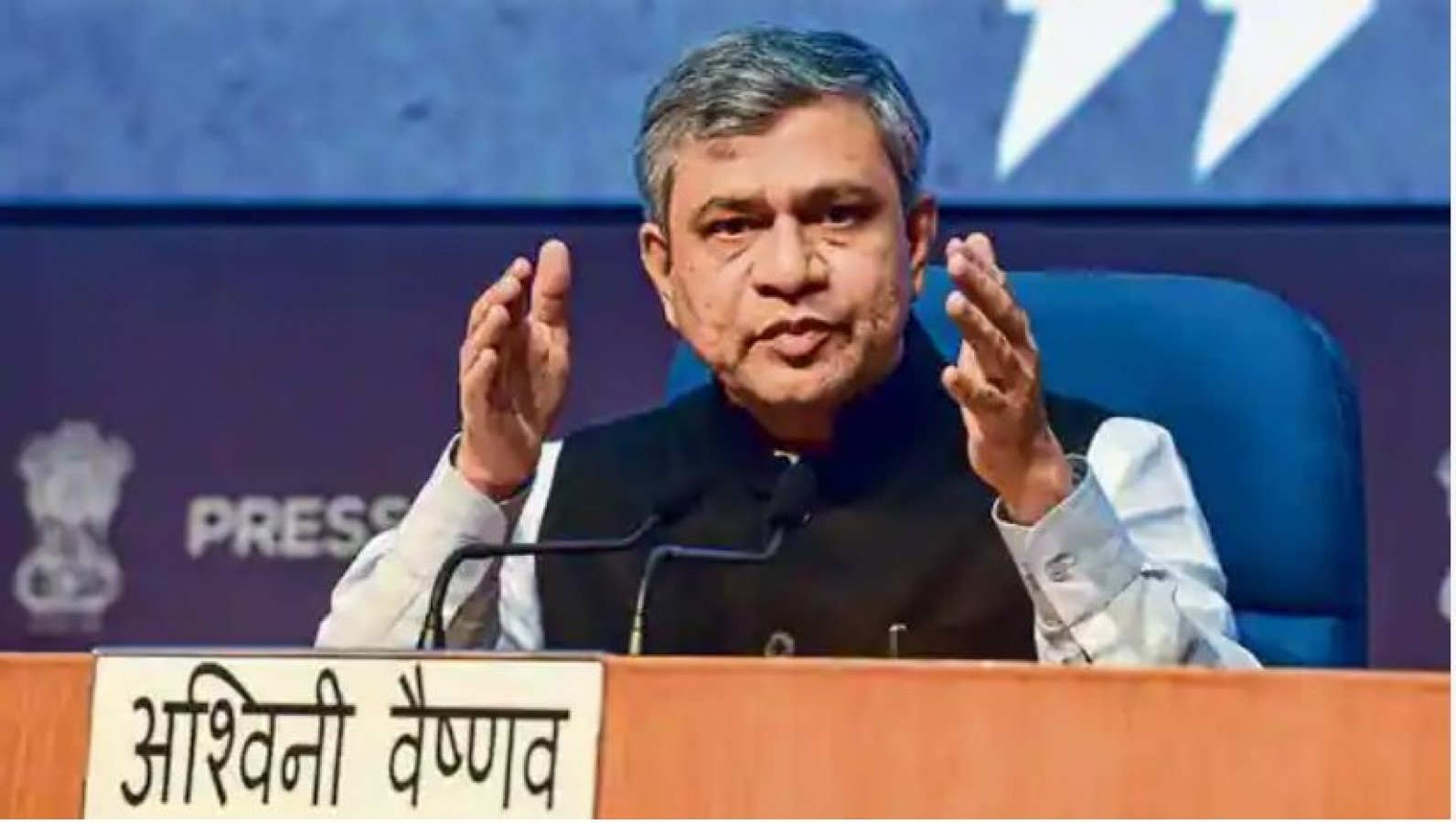
Make-in-India programme drives growth in manufacturing-based exports : Ashwini Vaishnaw
NEW DELHI : Union Minister of Electronics and Information Technology Shri Ashwini Vaishnaw on Thursday called Make-in-India a well thought initiative of PM Modi. Declaring it a success, he said that manufacturing boost has led to an increase in country’s export. More than half a percentage of India’s total export in FY23 was merchandise exports, followed by services exports. However, it used to be mostly services 10-15 years ago, said Ashwini Vaishnaw while highlighting the success of Make in India. He also called the boost to export due to manufacturing a major achievement for the country.
In the last financial year, a total of 762 billion dollars of exports was recorded. Out of this, 453 billion dollars was merchandise exports, services exports were 309 billion dollars. The picture was not the same 10-15 years ago when the export was led by services export mostly, Union Minister told.
Explaining the importance of the manufacturing sector in employment generation, Vaishnaw said, “When PM Modi launched Make in India, there was a deep thinking behind it. If things are manufactured in India, our people get jobs and our small and micro industries generate employment. If exports to other countries increase, money comes to the country and a change comes to the income and economy of the country in a way. With this thinking, Make in India was launched. Its success is clear.”
“This is a big turning point. It is a reflection of change in the country’s economy. Manufacturing-based exports impact a common man’s life. If we study the economy of countries like Japan and South Korea, we will see that they all, during their economic journey, focussed on manufacturing while moving from low-income to middle-income and then high-income,” Vaishnaw said.
He added, “If we study the growth period around the 1800 or early 1900 period of countries such as the US, Germany, France, UK etc, we find that they also focussed on manufacturing for moving from low income to middle and high income.
“Countries that have passed through the growth phase, all gave importance to manufacturing. This is what Modi ji did as the first big economic programme, economic philosophy and economics thought that he launched, Make It India, which has a big place in that,” Vaishnaw said.
It is the reflection of a series of programmes and simplifications that were introduced after the success of Make in India, Design in India, Innovate in India among others.
According to him, manufacturing-based growth has enhanced employment opportunities which is obvious from the data of formal employment or the registration in the provident fund that has gone from 6 lakh monthly or around 70 lakh annually to up to 14 lakh to 15 lakh monthly or around 1.8 crores annually.
“This shows a big change in the economy. The goal of two crore jobs every year that Modi ji targeted is about to be achieved now and manufacturing is a big factor behind this achievement,” he said.
Vaishnaw said that 10 to 15 years ago, petroleum used to be exported in the maximum quantity and other products like rice etc used to come later in the list of top products for export.
“Today, we see a diverse spectrum of products which we export. Though petroleum is still at the top with $97 billion in exports, pharmaceuticals has become our number two product which we exported worth $19 billion. Iron and steel, with worth $13 billion exports, has become the number three product. Export of mobile phones has come at the 4th position with $11 billion,” Vaishnaw said referring to exports data of 2022-23.
He added that products like pharmaceuticals and mobile phones which used to be insignificant as exportable products, have now figured among the country’s top four products for exports.
According to Vaishnaw, as per the current trend, this year India will export mobile phones worth $15 billion. “In another one or two years, you will find that exports of mobile, electronics and telecom will become top 2 or 3 products of the country,” he said.
Highlighting significant changes occurring in the areas of backward integration, Vaishnaw said that while mobile phone batteries will be manufactured in India, Tata is already manufacturing mobile casing.

